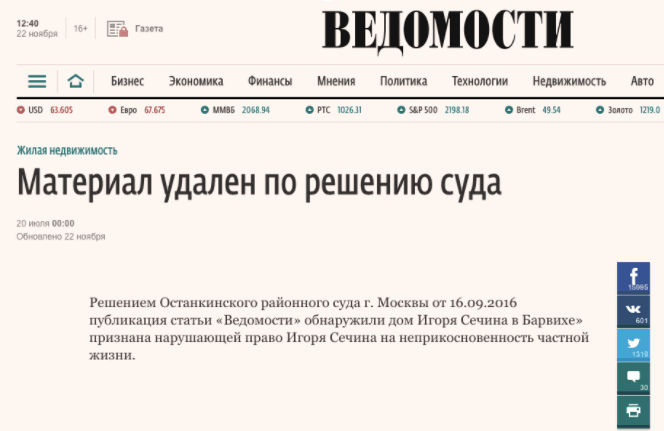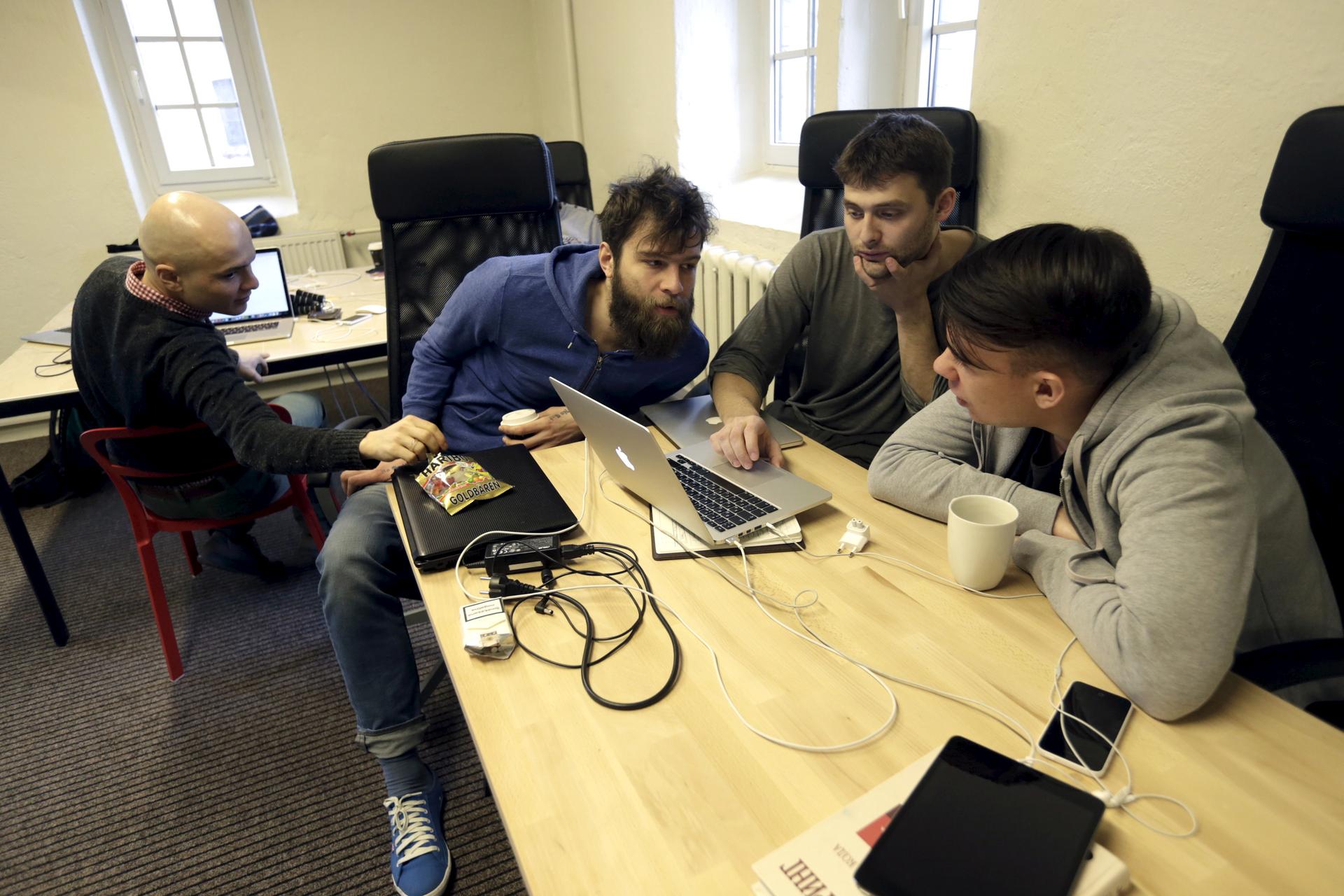How Putin has created the mirage of media pluralism in Russia
Journalists work in the office of independent, Russia-focused, media startup Meduza in Riga, on March 30, 2015.
Freedom of the press is a right ingrained in Americans. In Russia, press freedoms can't be taken for granted.
According to Reporters Without Borders, in 2016 Russia ranked 148 out of 180 nations in terms of press freedom. The US was No. 41.
In Russia, while some direct censorship does occur, a bigger issue is self-censorship; people are afraid of the ramifications of writing or saying something that may offend the government. “It's harder than before to practice independent journalism, just because there are a lot of ways that the government can basically confront you,” says Aleksandr Gorbachev, features editor at Meduza, an independent news outlet.
Gorbachev says there are any number of ways journalists are under threat — “either through your business, like hurting your business — your media business — or the primary business of your owner. Or through direct censorship, blocking some websites or demanding some websites that, for example, they delete articles because of privacy violations.”
Meduza covers Russian politics from Latvia, outside the reach of the Russian government. It was founded in 2014 by Galina Timchenko, the former head of lenta.ru, one of Russia’s biggest news websites. Timchenko was fired following Lenta’s publication of an interview with a Ukrainian far-right nationalist leader, which included a link to a profile that a media regulator said promoted “ethnic hatred.” Gorbachev was also working at Lenta at the time. He and many of his colleagues quit their jobs after Timchenko’s firing, because they felt they would not be allowed to be independent. He says Timchenko was replaced with a new editor-in-chief, “who was known to be, so-to-speak, the Kremlin's guy.”
Those still working inside Russia have had many more difficulties, says Gorbachev. He notes in November, Igor Sechin, a close friend of Russian President Vladimir Putin and head of the state-owned oil company Rosneft, won a high-profile lawsuit against the Russian newspaper Vedomosti. Sechin was incensed that the paper published a story about an expensive country house he owns. The court found the article violated Sechin’s right to privacy and not only ordered the online article removed but also demanded all surviving copies of the newspaper containing the article be destroyed.

Gorbachev considers the verdict against Vedomosti an affront to all Russian journalists.
“The Russian judicial system is pretty much very corrupted and mostly controlled by the government,” says Gorbachev. Gorbachev notes that if Sechin, one of the most powerful men in the country, can hide behind libel laws, that makes it nearly impossible to hold accountable any of Russia’s elite.
These developments have been especially troubling given the state of other media options in Russia. Jeffrey Gedmin is a nonresident senior fellow for the Future Europe Initiative at the Atlantic Council and a former president of Radio Free Europe/Radio Liberty. He says that because much of television and radio is state-run, print is one of the last bastions of independent journalism.
“Putin is not the leader of the Soviet Union and that is meant in more ways than one. This is not a communist totalitarian state in a pre-high-tech era where he could block, and jam, and manage, and control the information space. But what has he done? He has decided that mass media is very important in Russia, television. He has decided that small print publications with modest circulation where intellectuals publish is less important, tolerate that a little bit. What he's done is he's created the image or the idea of pluralism."
Still, Gedmin says print publications are limited in their scope of coverage.
“There ain't much to it when you scratch the surface because, in Russia, if you want to have information about cars, or sports, or fashion, or entertainment, or travel, there's lots of it. Not at all like the Soviet Union, lots on offer. If you want, if I could use the expression nourishing of civil society, the democratic idea, democratic culture, ideas that would be useful in public policy for opposition parties and politicians, either not so much or he who pursues those courses runs afoul of authorities and can be pressured, intimidated or end up in jail.”
Anne Garrels, a former NPR foreign correspondent, says it’s still possible to find independent news online but it comes with a few big caveats.
“The internet is still relatively free. There are discussions there, but anybody who begins to become too popular, who begins to challenge the authorities in a real way, will certainly find himself under threat, usually by the tax police. It's a very effective way of dealing with it.”
But despite these risks, Gorbachev notes that there are still some journalists doing good work.
“I think I painted a pretty grim picture, I wouldn't say that it's as grim as it may seem. There are, not many, but, a bunch of very good independent news organizations in Russia, like newspapers, websites that do investigative stuff, dig things about corruption and power abuse.”
The question remains, how long will these organizations be able to last?
America Abroad is an award-winning documentary radio program that takes an in-depth look at one critical issue in international affairs and US foreign policy every month. You can follow them on Facebook, talk to them on Twitter, and subscribe to their weekly newsletter for updates.
